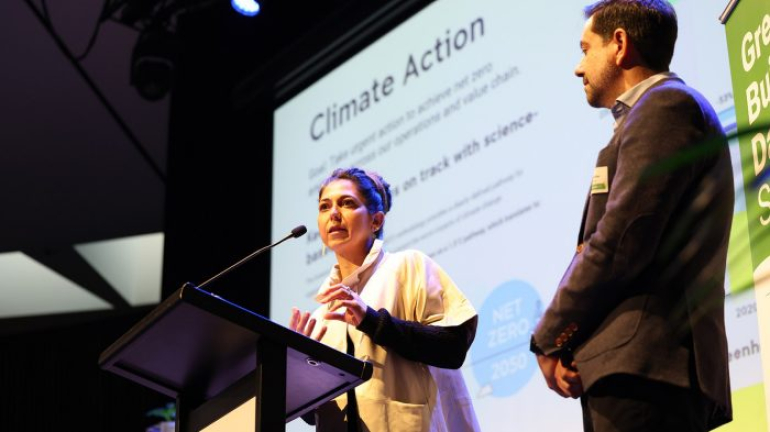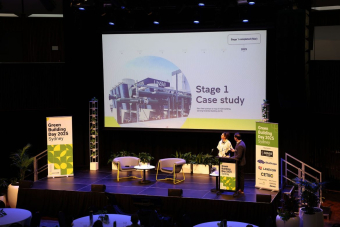Sustainability took centre stage as industry leaders gathered for a one-day program hosted by the Green Building Council of Australia (GBCA), which explored technical pathways to achieving higher-performing buildings and precincts, and equipped professionals to deliver stronger sustainability outcomes through Green Star projects.
UNSW’s presentation, led by Jose Bilbao, Senior Manager, Energy and Utilities Management at UNSW, and Melissa Nouel, Manager of the Sustainable Built Environment in the Environmental Sustainability team, focused on the delivery of Stage 1 of the University’s Electrification Program – a key component of its approach to decarbonising campus operations.
Their session began by framing the University’s Environmental Sustainability Plan and its net zero targets under the Progress for All Strategy. With critical building retrofits and every major UNSW development project targeting Green Star outcomes, electrification is central to delivering long-term climate goals and efficiency gains, reducing reliance on natural gas and setting a scalable model for future decarbonisation projects.
The team walked attendees through UNSW’s electrification original roadmap, strategic staging, and a detailed case study of projects within Stage 1 of the Electrification Program, which was completed in March 2025. This case focused on:
- The Kensington Colleges (six buildings): domestic hot water, students kitchens, laundries, BBQs, and large commercial kitchen.
- Scientia Building: new heat pump for space heating, large commercial kitchen.
- House at Pooh Corner (childcare centre): domestic hot water and small commercial kitchen.
- Paddington Campus (whole campus): new pump for space heating and domestic hot water.
- David Phillips Field: domestic hot water and small commercial kitchen.
“Electrification is not only possible and critical to achieve the Paris Agreement, but also desired, as it provides so many direct and indirect benefits like air quality, operational efficiencies and reduction of fugitive emissions,” said Tim Beattie, Chief Property Officer, from UNSW Estate Management.
By showcasing tangible outcomes and future-focused planning, UNSW reinforced its leadership in sustainable campus development. The event also provided opportunities to collaborate with industry peers, learn from other case studies, and demonstrate how institutions can take climate action at scale.

